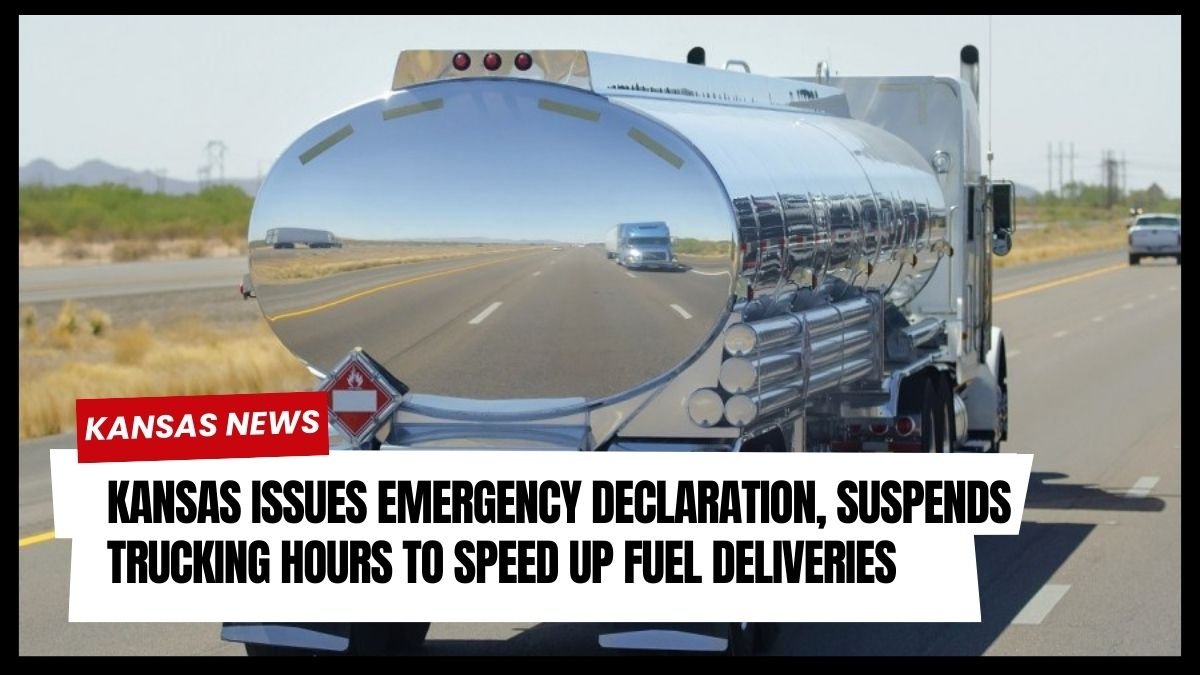Kansas and neighboring states are facing a fuel shortage, causing disruptions in supply delivery and long lines at fuel terminals.
To alleviate these problems, government officials are making temporary changes to regulations to help truckers work longer hours.
Fuel Shortage Impact
According to Brian Poster, Executive Director of Fuel True Independent Energy & Convenience, truckers are going as far as Texas and Colorado to secure fuel and return to their destinations to keep customers supplied. The shortage is creating a significant challenge for distributors in particular.
“The shortage is not only affecting Kansas but also surrounding states,” said Poster. “This situation is primarily putting a strain on fuel distributors.”
Factors Contributing to the Shortage
The shortage is being driven by multiple factors, including ongoing pipeline work and the seasonal switch to the summer fuel blend. These disruptions are expected to continue affecting fuel supplies in the short term.
“Hopefully, we’ll see the pipeline functioning at full capacity, and the refineries will operate at peak efficiency. This would allow us to return to normal fuel supply levels in about two weeks,” Poster added.
Governor’s Response to the Crisis
In response to the fuel shortage, Governor Laura Kelly has declared a state of emergency to issue a waiver for hours of service regulations for truckers in Kansas. This move is intended to ease delays in fuel deliveries.
“I’m issuing this declaration to help reduce delays and get fuel to those who need it,” Governor Kelly stated. “This situation is not just limited to Kansas; neighboring states are facing similar disruptions.”
Potential Fuel Impact and Supply Chain Bottleneck
The Kansas Division of Emergency Management recently announced that while diesel fuel is particularly affected, gasoline could face disruptions as well. Wichita County Emergency Management clarified that the issue is a supply chain bottleneck rather than a fuel shortage.
“There is a bottleneck in the supply chain, but not an overall fuel shortage,” the statement from Wichita County said. “The extension of hours will help drivers deliver fuel more efficiently and on time.”
Temporary Waiver for Truck Drivers
To combat the supply chain disruption, the Kansas Corporation Commission (KCC) has granted a 14-day temporary waiver to all motor carriers. This waiver suspends federal regulations that limit the service hours of intrastate and interstate drivers transporting fuel.
“This temporary measure will help ensure a steady fuel supply by allowing drivers to work longer hours,” stated Andrew French, KCC Chairman. “The goal is to prevent further delays and assist with timely deliveries.”
Enforcement of New Regulations
Colonel Erik Smith, Superintendent of the Kansas Highway Patrol, confirmed that law enforcement will support the new regulations to ensure compliance with these temporary changes.
“The Kansas Highway Patrol will work closely with the Governor’s proclamation to ensure that enforcement efforts are consistent with the new hours of service changes,” Smith added.
Key Actions Taken in Response to Fuel Shortage
| Action | Description |
|---|---|
| State of Emergency | Governor Laura Kelly issued a proclamation to allow extended service hours for truckers. |
| Temporary Waiver | Kansas Corporation Commission granted a 14-day waiver of service hour regulations for fuel delivery drivers. |
| Supply Chain Bottleneck | Fuel shortages caused by a bottleneck, not an overall fuel shortage, according to Wichita County Emergency Management. |
| Kansas Highway Patrol | Will ensure that commercial vehicles comply with new regulations during the emergency period. |
Kansas is facing a temporary fuel shortage that is impacting both diesel and gasoline supplies. To address the issue, state officials have implemented regulatory changes allowing truckers to work longer hours to facilitate quicker deliveries.
While the situation remains fluid, it is expected that fuel supplies will stabilize within the next two weeks as efforts continue to resolve the bottleneck in the supply chain.




